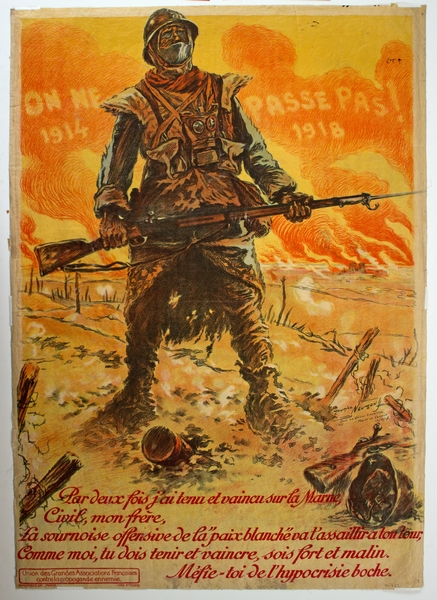Featured World War I Posters
Selling the War
Posters were a very effective means of messaging throughout World War I and were pasted onto walls and billboards everywhere to reach the widest possible audience. This form of propaganda, or “selling the war,” was used by both the Allies and the Central Powers to spark patriotism, raise funds and resources and foster hatred of the enemy. The posters were the work of the illustrators of the day – styles and techniques are as diverse as the artists and their countries. Although the United States came late to the war, it produced more WWI posters than any other country.
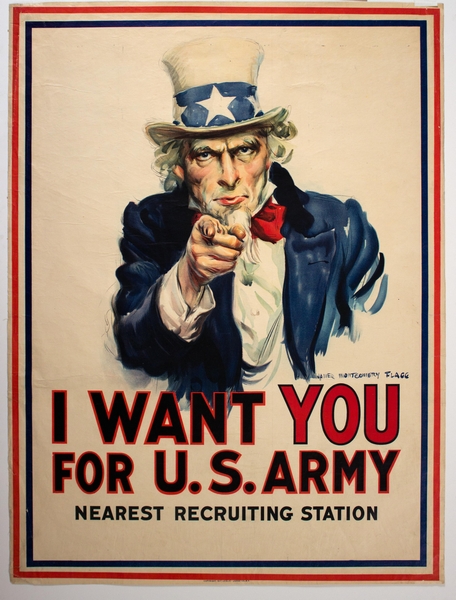
World War I posters from all countries used compassionate, patriotic, flattering, dutiful and challenging messages and images to recruit soldiers and volunteers for the war effort. Every man needed to do his part to win the war.
Liberty Loan and Fundraising Posters
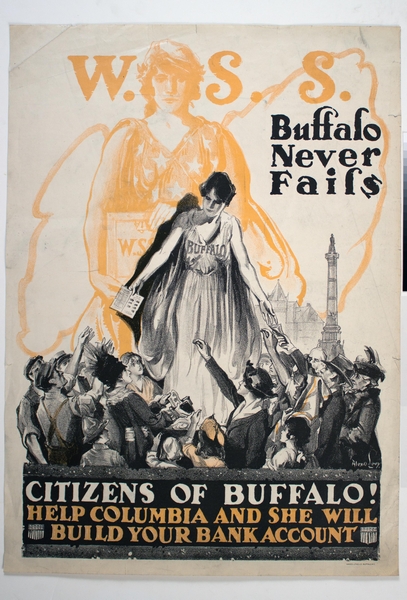
Liberty Loan posters were essential in convincing folks at home they needed to give money to help pay for the Great War. As an immigrant nation, the United States promoted unity with slogans such as “Together We Win” and “For Home and Country.” Patriotic images combined with a bit of guilt as well as fear of the enemy, Liberty Loan posters instilled a sense of duty to preserve the United States and support the war effort.
Red Cross and Community Service Posters
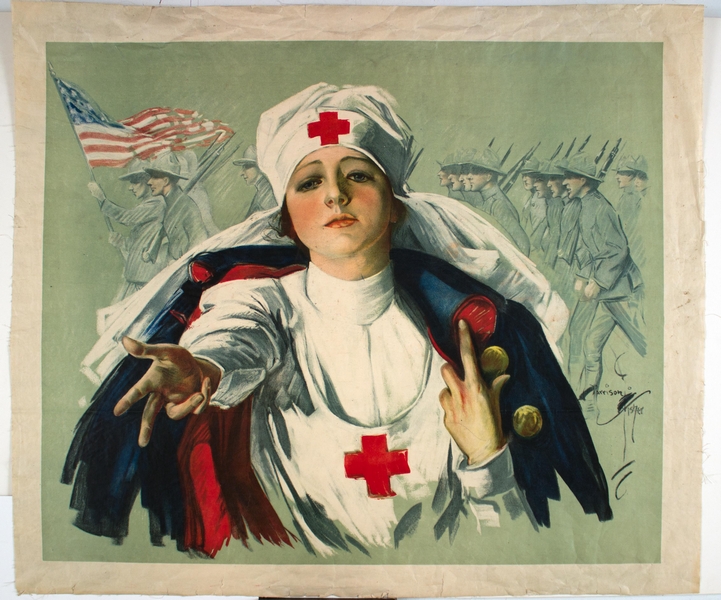
The American Red Cross needed money in WWI to organize, train and mobilize hospitals and ambulance companies. Often featuring an outstretched hand, these posters were intended to be dramatic and heartfelt. The posters helped recruit 20,000 nurses to serve the military and raised funds and volunteers for all service organizations.
Food Conservation and Home Front Support
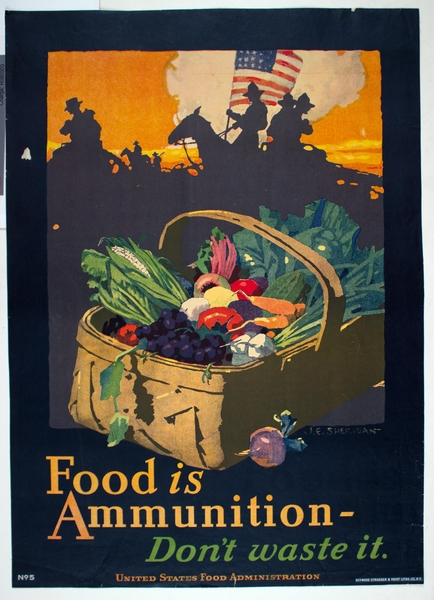
Folks at home could support the war effort by conserving food, volunteering and donating money to the cause. The message was ‘to do our part at home so our boys would have enough supplies to stay strong and keep fighting overseas.”

